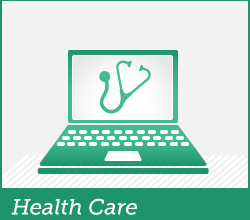The Wall Street Journal devotes its Journal Report section today to pro/con debates on six health care issues. Five are reasonable and either timely or timeless: Should everyone be required to have health insurance? Should healthy people take cholesterol drugs to prevent heart disease? Should every patient have a unique ID number for all medical records? Can accountable-care organizations raise quality while reducing costs? Should patents on pharmaceuticals be extended to encourage innovation?
The Wall Street Journal devotes its Journal Report section today to pro/con debates on six health care issues. Five are reasonable and either timely or timeless: Should everyone be required to have health insurance? Should healthy people take cholesterol drugs to prevent heart disease? Should every patient have a unique ID number for all medical records? Can accountable-care organizations raise quality while reducing costs? Should patents on pharmaceuticals be extended to encourage innovation?
But one –Should physicians use email to communicate with patients?– should have been settled more than 10 years ago. It’s almost a joke that it’s still being asked, and at first I thought the question was about whether doctors and patients should still be using email as opposed to whether they should be trying it for the first time. Dr. Joseph Kvedar of the Center for Connected Health trots out all the well-rehearsed arguments that have been used over the past 15 years to encourage patients to use electronic messaging with their patients. And I agree with it all:
- Privacy concerns are overblown and not unique to electronic media
- Not every interaction needs to be in-person
- Doctors won’t be inundated with messages, despite their fears
- Patients feel more connected to their physicians when they can reach them online
- Electronic communications promotes efficiency
- Liability issues are minor
- The non-verbal aspects are missed –(although of course they are often missed in a quick office visit, too)
- Patients may panic in response to an email: running to the Internet for self-diagnosis, forwarding the email to friends who give bad advice, etc. –(as though a doctor is really going to give a serious diagnosis by email)
- “Email is a treasure chest for malpractice attorneys” who are “willing to take on a case no matter how ludicrous a claim may be” –(doctors may believe this but it isn’t true; attorneys want to take cases they can win)
- Secure emails are too tough for patients to deal with –(it’s also hard for some patients to get to the doctor’s office)
- “The doctor’s office is where medicine should be practiced.” –(this is the one that made me think he wasn’t sincere in his view)






